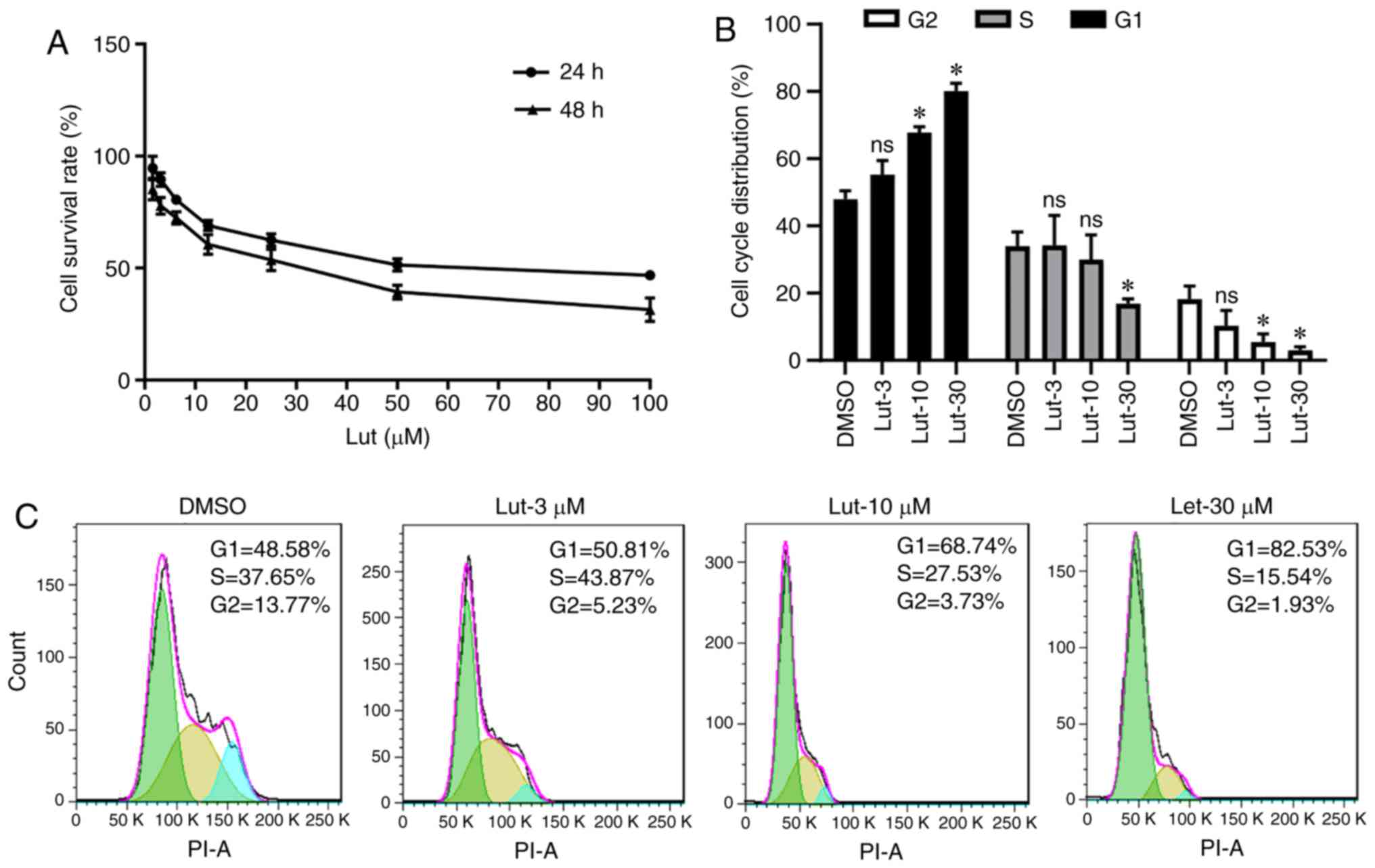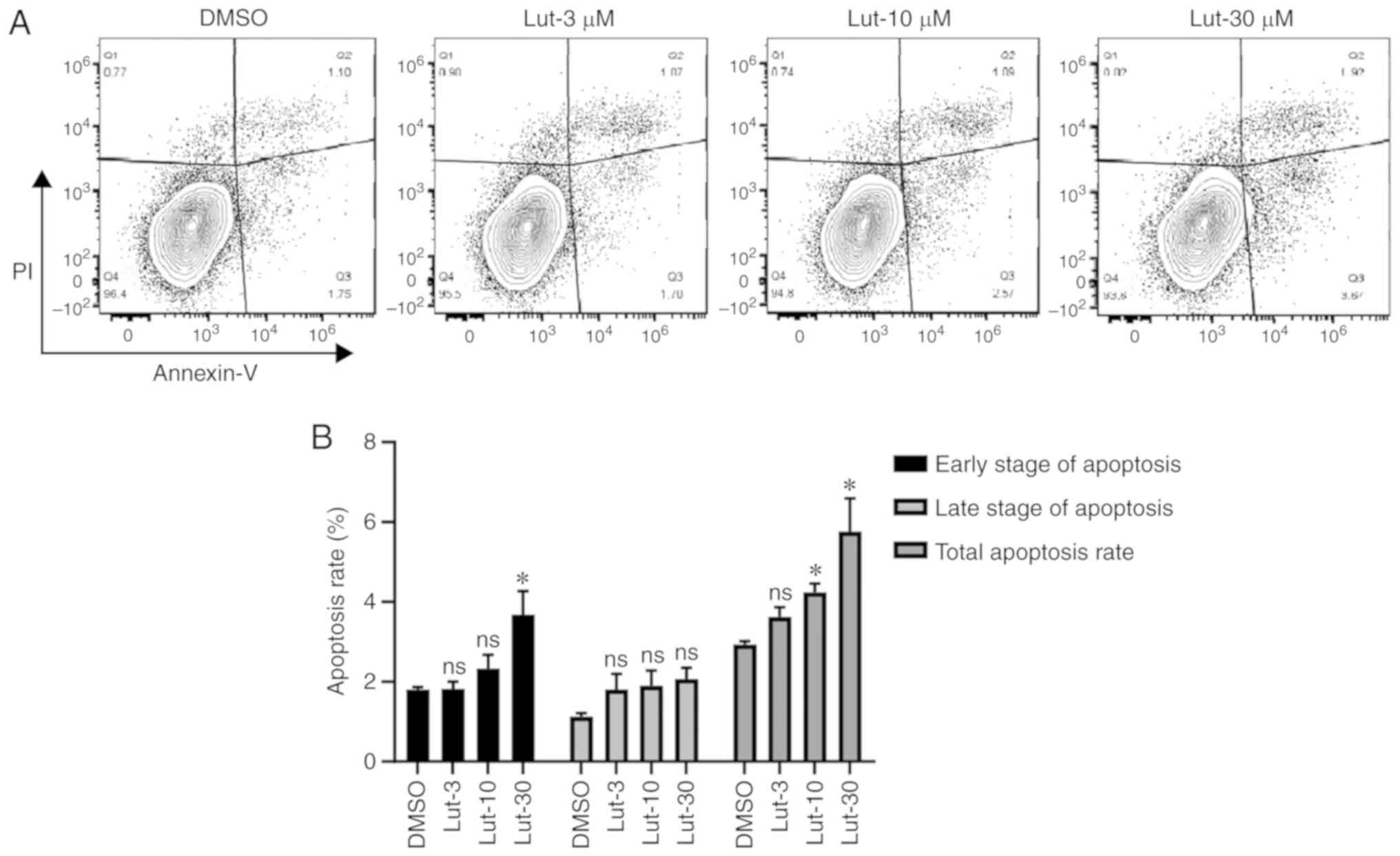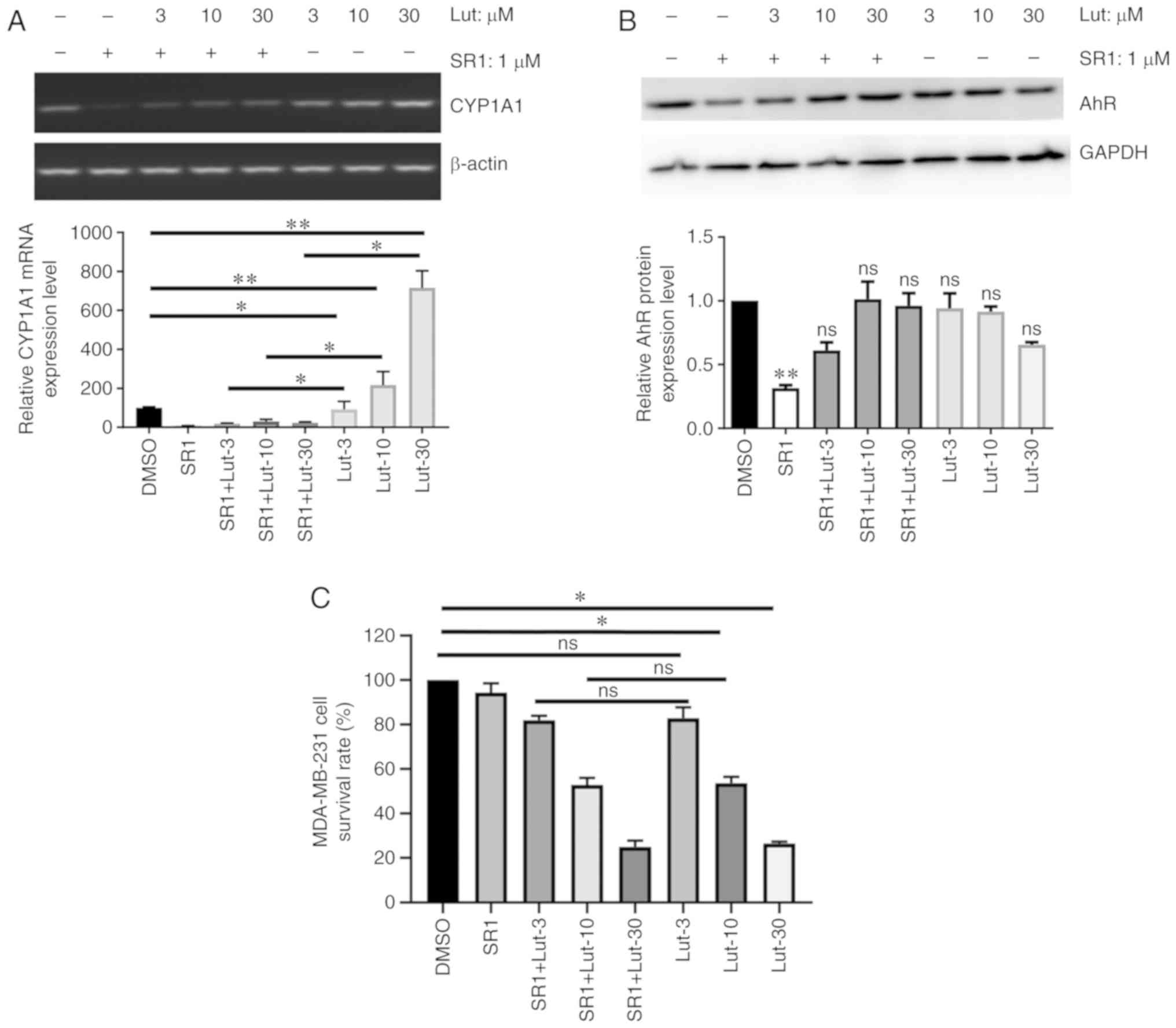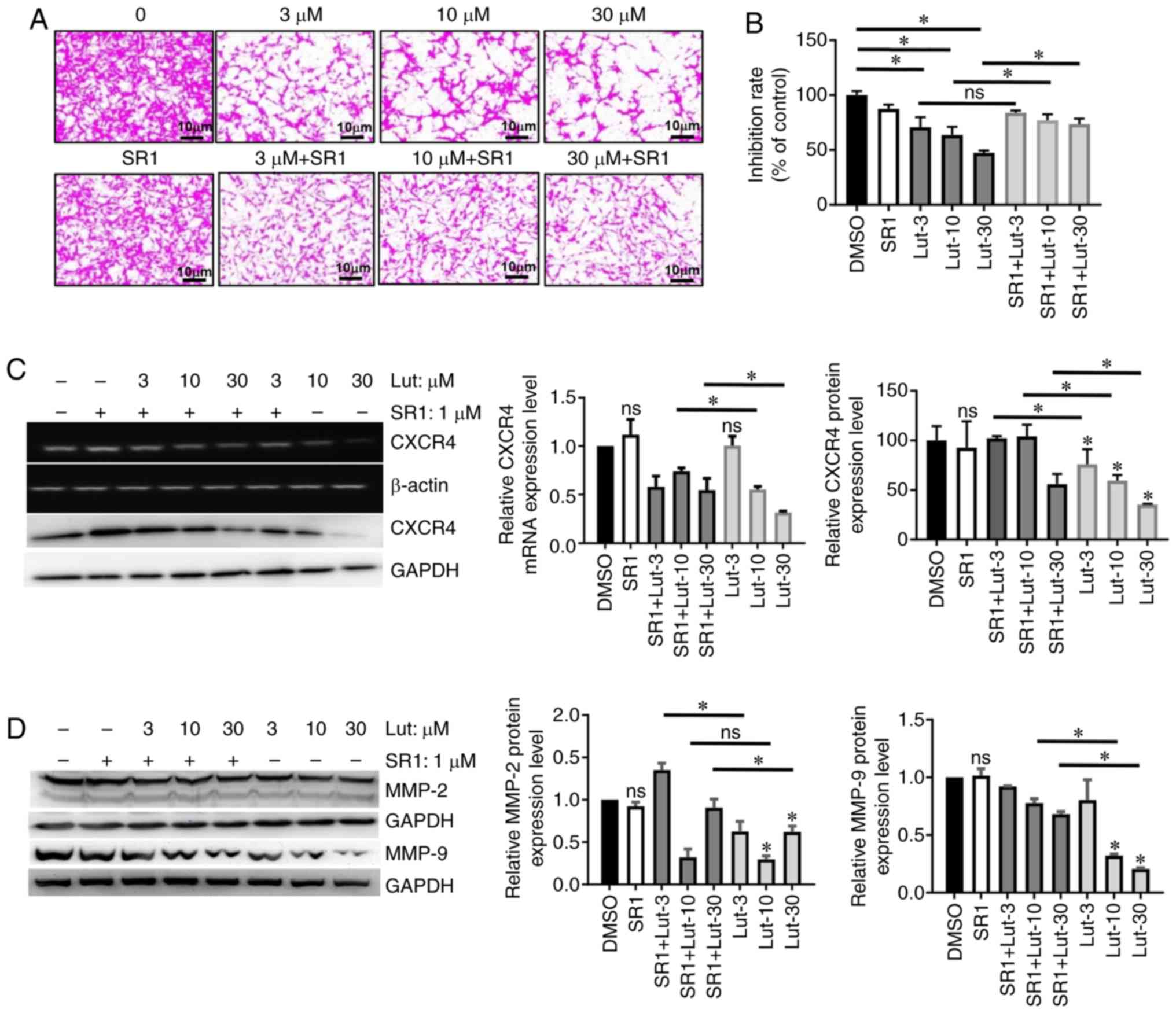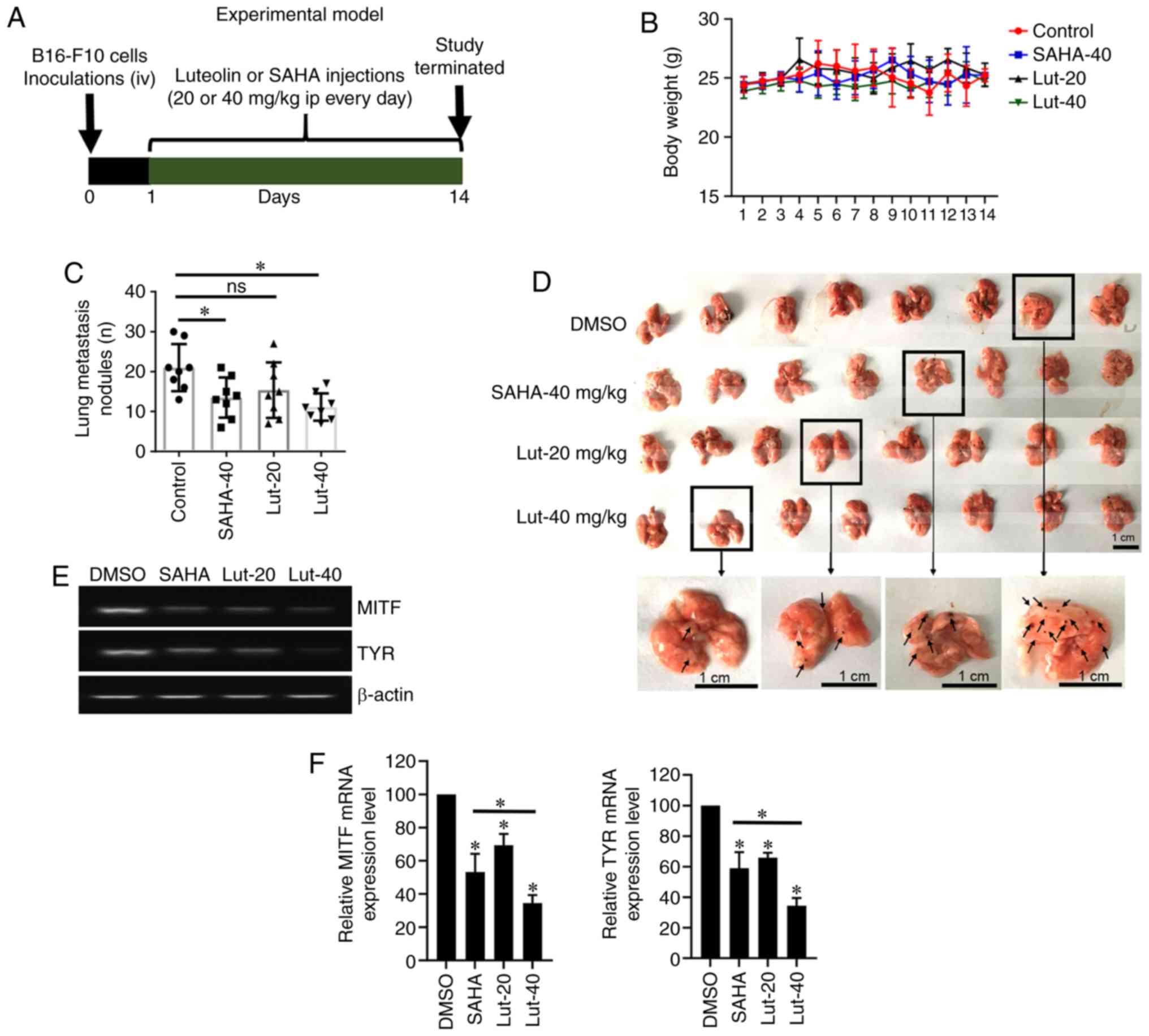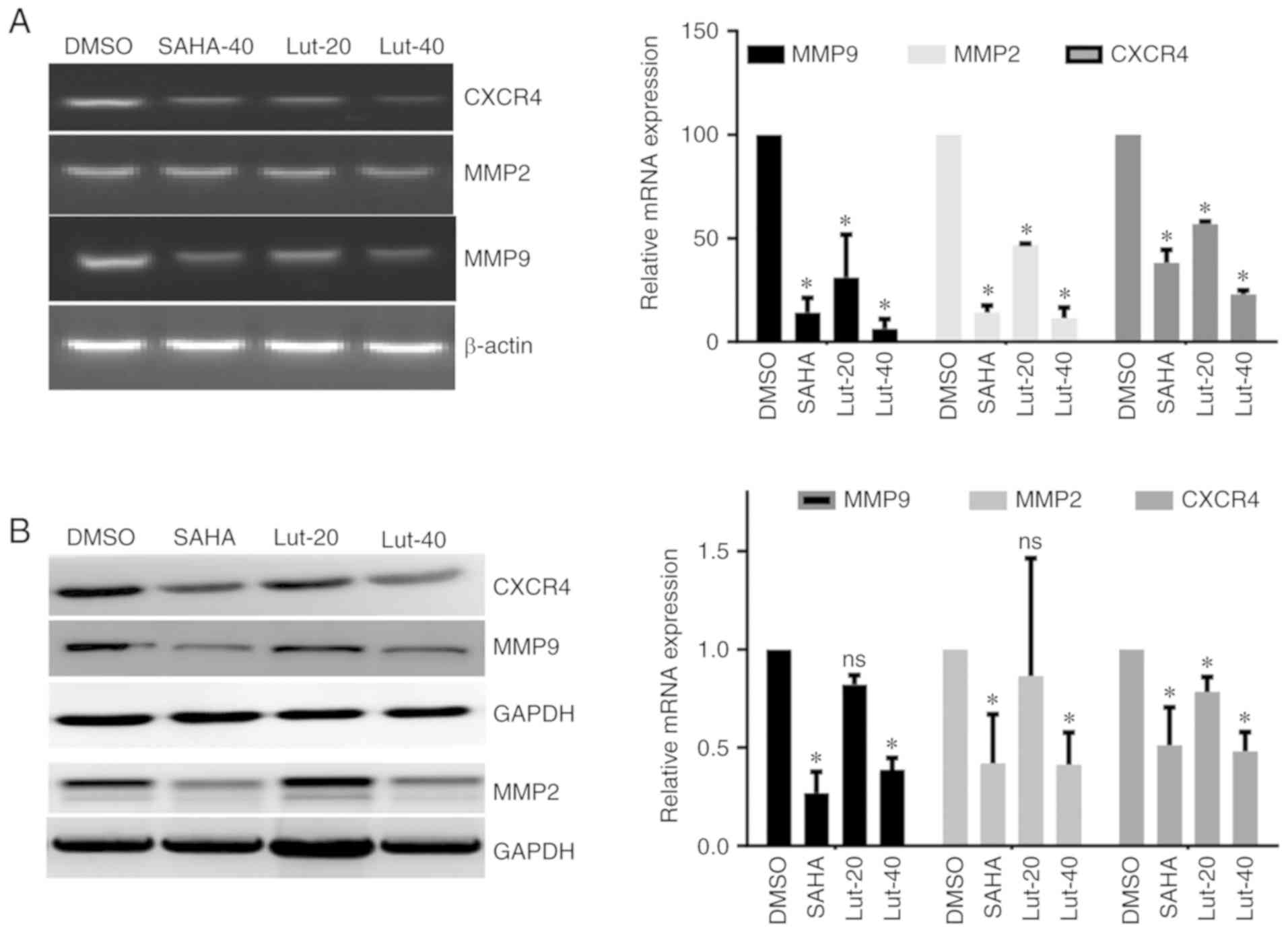|
1
|
Fernández-Nogueira P, Mancino M, Fuster G,
Bragado P, Puig MP, Gascón P, Casado FJ and Carbó N: Breast
mammographic density: Stromal implications on breast cancer
detection and therapy. J Clin Med. 9:7762020. View Article : Google Scholar
|
|
2
|
Arvold ND, Taghian AG, Niemierko A, Abi
Raad RF, Sreedhara M, Nguyen PL, Bellon JR, Wong JS, Smith BL and
Harris JR: Age, breast cancer subtype approximation, and local
recurrence after breast-conserving therapy. J Clin Oncol.
29:3885–3891. 2011. View Article : Google Scholar : PubMed/NCBI
|
|
3
|
Al-Mahmood S, Sapiezynski J, Garbuzenko OB
and Minko T: Metastatic and triple-negative breast cancer:
Challenges and treatment options. Drug Deliv Transl Res.
8:1483–1507. 2018. View Article : Google Scholar : PubMed/NCBI
|
|
4
|
Denkert C, Liedtke C, Tutt A and von
Minckwitz G: Molecular alterations in triple-negative breast
cancer-the road to new treatment strategies. Lancet. 389:2430–2442.
2017. View Article : Google Scholar : PubMed/NCBI
|
|
5
|
Denison MS, Pandini A, Nagy SR, Baldwin EP
and Bonati L: Ligand binding and activation of the Ah receptor.
Chem Biol Interact. 141:3–24. 2002. View Article : Google Scholar : PubMed/NCBI
|
|
6
|
Poland A, Glover E and Kende AS:
Stereospecific, high affinity binding of
2,3,7,8-tetrachlorodibenzo-p-dioxin by hepatic cytosol. Evidence
that the binding species is receptor for induction of aryl
hydrocarbon hydroxylase. J Biol Chem. 251:4936–4946.
1976.PubMed/NCBI
|
|
7
|
Murray IA, Patterson AD and Perdew GH:
Aryl hydrocarbon receptor ligands in cancer: Friend and foe. Nat
Rev Cancer. 14:801–814. 2014. View
Article : Google Scholar : PubMed/NCBI
|
|
8
|
Kolluri SK, Jin UH and Safe S: Role of the
aryl hydrocarbon receptor in carcinogenesis and potential as an
anti-cancer drug target. Arch Toxicol. 91:2497–2513. 2017.
View Article : Google Scholar : PubMed/NCBI
|
|
9
|
Vacher S, Castagnet P, Chemlali W,
Lallemand F, Meseure D, Pocard M, Bieche I and Perrot-Applanat M:
High AHR expression in breast tumors correlates with expression of
genes from several signaling pathways namely inflammation and
endogenous tryptophan metabolism. PLoS One. 13:e01906192018.
View Article : Google Scholar : PubMed/NCBI
|
|
10
|
Ronnekleiv-Kelly SM, Nukaya M, Díaz-Díaz
CJ, Megna BW, Carney PR, Geiger PG and Kennedy GD: Aryl hydrocarbon
receptor-dependent apoptotic cell death induced by the flavonoid
chrysin in human colorectal cancer cells. Cancer Lett. 370:91–99.
2016. View Article : Google Scholar : PubMed/NCBI
|
|
11
|
O'Donnell EF, Koch DC, Bisson WH, Jang HS
and Kolluri SK: The aryl hydrocarbon receptor mediates
raloxifene-induced apoptosis in estrogen receptor-negative hepatoma
and breast cancer cells. Cell Death Dis. 5:e10382014. View Article : Google Scholar : PubMed/NCBI
|
|
12
|
D'Amato NC, Rogers TJ, Gordon MA, Greene
LI, Cochrane DR, Spoelstra NS, Nemkov TG, D'Alessandro A, Hansen KC
and Richer JK: A TDO2-AhR signaling axis facilitates anoikis
resistance and metastasis in triple-negative breast cancer. Cancer
Res. 75:4651–4664. 2015. View Article : Google Scholar : PubMed/NCBI
|
|
13
|
Brinkmann V, Ale-Agha N, Haendeler J and
Ventura N: The Aryl hydrocarbon receptor (AhR) in the aging
process: Another puzzling role for this highly conserved
transcription factor. Front Physiol. 10:15612019. View Article : Google Scholar : PubMed/NCBI
|
|
14
|
Denison MS and Nagy SR: Activation of the
aryl hydrocarbon receptor by structurally diverse exogenous and
endogenous chemicals. Annu Rev Pharmacol Toxicol. 43:309–334. 2003.
View Article : Google Scholar : PubMed/NCBI
|
|
15
|
Cook MT, Mafuvadze B, Besch-Williford C,
Ellersieck MR, Goyette S and Hyder SM: Luteolin suppresses
development of medroxyprogesterone acetate-accelerated
7,12-dimethylbenz(a)anthracene-induced mammary tumors in
Sprague-Dawley rats. Oncol Rep. 35:825–832. 2016. View Article : Google Scholar : PubMed/NCBI
|
|
16
|
Cook MT, Liang Y, Besch-Williford C,
Goyette S, Mafuvadze B and Hyder SM: Luteolin inhibits
progestin-dependent angiogenesis, stem cell-like characteristics,
and growth of human breast cancer xenografts. SpringerPlus.
4:4442015. View Article : Google Scholar : PubMed/NCBI
|
|
17
|
Tester AM, Waltham M, Oh SJ, Bae SN, Bills
MM, Walker EC, Kern FG, Stetler-Stevenson WG, Lippman ME and
Thompson EW: Pro-matrix metalloproteinase-2 transfection increases
orthotopic primary growth and experimental metastasis of MDA-MB-231
human breast cancer cells in nude mice. Cancer Res. 64:652–658.
2004. View Article : Google Scholar : PubMed/NCBI
|
|
18
|
Cook MT, Liang Y, Besch-Williford C and
Hyder SM: Luteolin inhibits lung metastasis, cell migration, and
viability of triple-negative breast cancer cells. Breast Cancer
(Dove Med Press). 9:9–19. 2017.PubMed/NCBI
|
|
19
|
Ko WG, Kang TH, Lee SJ, Kim YC and Lee BH:
Effects of luteolin on the inhibition of proliferation and
induction of apoptosis in human myeloid leukaemia cells. Phytother
Res. 16:295–298. 2002. View
Article : Google Scholar : PubMed/NCBI
|
|
20
|
Sabzichi M, Hamishehkar H, Ramezani F,
Sharifi S, Tabasinezhad M, Pirouzpanah M, Ghanbari P and Samadi N:
Luteolin-loaded phytosomes sensitize human breast carcinoma MDA-MB
231 cells to doxorubicin by suppressing Nrf2 mediated signalling.
Asian Pac J Cancer Prev. 15:5311–5316. 2014. View Article : Google Scholar : PubMed/NCBI
|
|
21
|
Zhao H, Bo Q, Wang W, Wang R, Li Y, Chen
S, Xia Y, Wang W, Wang Y, Zhu K, et al: CCL17-CCR4 axis promotes
metastasis via ERK/MMP13 pathway in bladder cancer. J Cell Biochem.
Sep 19–2018.(Epub ahead of print).
|
|
22
|
Tang Y, Lv P, Sun Z, Han L and Zhou W:
14-3-3β promotes migration and invasion of human hepatocellular
carcinoma cells by modulating expression of MMP2 and MMP9 through
PI3K/Akt/NF-κB pathway. PLoS One. 11:e01460702016. View Article : Google Scholar : PubMed/NCBI
|
|
23
|
Zhang T, Kimura Y, Jiang S, Harada K,
Yamashita Y and Ashida H: Luteolin modulates expression of
drug-metabolizing enzymes through the AhR and Nrf2 pathways in
hepatic cells. Arch Biochem Biophys. 557:36–46. 2014. View Article : Google Scholar : PubMed/NCBI
|
|
24
|
Koper JEB, Loonen LMP, Wells JM, Troise
AD, Capuano E and Fogliano V: Polyphenols and tryptophan
metabolites activate the Aryl hydrocarbon receptor in an in vitro
model of colonic fermentation. Mol Nutr Food Res. 63:e18007222019.
View Article : Google Scholar : PubMed/NCBI
|
|
25
|
Choi MH, Jo HG, Yang JH, Ki SH and Shin
HJ: Antioxidative and anti-melanogenic activities of bamboo stems
(Phyllostachys nigra variety henosis) via PKA/CREB-mediated MITF
downregulation in B16F10 melanoma cells. Int J Mol Sci. 19:4092018.
View Article : Google Scholar
|
|
26
|
Hartman ML, Talar B, Noman MZ,
Gajos-Michniewicz A, Chouaib S and Czyz M: Gene expression
profiling identifies microphthalmia-associated transcription factor
(MITF) and Dickkopf-1 (DKK1) as regulators of
microenvironment-driven alterations in melanoma phenotype. PLoS
One. 9:e951572014. View Article : Google Scholar : PubMed/NCBI
|
|
27
|
Piwarski SA, Thompson C, Chaudhry AR,
Denvir J, Primerano DA, Fan J and Salisbury TB: The putative
endogenous AHR ligand ITE reduces JAG1 and associated NOTCH1
signaling in triple negative breast cancer cells. Biochem
Pharmacol. 174:1138452020. View Article : Google Scholar : PubMed/NCBI
|
|
28
|
Baker JR, Sakoff JA and McCluskey A: The
aryl hydrocarbon receptor (AhR) as a breast cancer drug target. Med
Res Rev. 40:972–1001. 2019. View Article : Google Scholar : PubMed/NCBI
|
|
29
|
Zhang S, Kim K, Jin UH, Pfent C, Cao H,
Amendt B, Liu X, Wilson-Robles H and Safe S: Aryl hydrocarbon
receptor agonists induce microRNA-335 expression and inhibit lung
metastasis of estrogen receptor negative breast cancer cells. Mol
Cancer Ther. 11:108–118. 2012. View Article : Google Scholar : PubMed/NCBI
|
|
30
|
Subramaniam V, Ace O, Prud'homme GJ and
Jothy S: Tranilast treatment decreases cell growth, migration and
inhibits colony formation of human breast cancer cells. Exp Mol
Pathol. 90:116–122. 2011. View Article : Google Scholar : PubMed/NCBI
|
|
31
|
Subramaniam V, Chakrabarti R, Prud'homme
GJ and Jothy S: Tranilast inhibits cell proliferation and migration
and promotes apoptosis in murine breast cancer. Anticancer Drugs.
21:351–361. 2010. View Article : Google Scholar : PubMed/NCBI
|
|
32
|
Poormasjedi-Meibod MS, Salimi Elizei S,
Leung V, Baradar Jalili R, Ko F and Ghahary A: Kynurenine modulates
MMP-1 and type-I collagen expression via Aryl hydrocarbon receptor
activation in dermal fibroblasts. J Cell Physiol. 231:2749–2760.
2016. View Article : Google Scholar : PubMed/NCBI
|
|
33
|
Yang T, Feng YL, Chen L, Vaziri ND and
Zhao YY: Dietary natural flavonoids treating cancer by targeting
aryl hydrocarbon receptor. Crit Rev Toxicol. 49:445–460. 2019.
View Article : Google Scholar : PubMed/NCBI
|
|
34
|
Lv Q, Shi C, Qiao S, Cao N, Guan C, Dai Y
and Wei Z: Alpinetin exerts anti-colitis efficacy by activating
AhR, regulating miR-302/DNMT-1/CREB signals, and therefore
promoting Treg differentiation. Cell Death Dis. 9:8902018.
View Article : Google Scholar : PubMed/NCBI
|
|
35
|
Zhao H, Chen L, Yang T, Feng YL, Vaziri
ND, Liu BL, Liu QQ, Guo Y and Zhao YY: Aryl hydrocarbon receptor
activation mediates kidney disease and renal cell carcinoma. J
Transl Med. 17:3022019. View Article : Google Scholar : PubMed/NCBI
|
|
36
|
Yu Q, Zhang M, Ying Q, Xie X, Yue S, Tong
B, Wei Q, Bai Z and Ma L: Decrease of AIM2 mediated by luteolin
contributes to non-small cell lung cancer treatment. Cell Death
Dis. 10:2182019. View Article : Google Scholar : PubMed/NCBI
|
|
37
|
Cordaro M, Cuzzocrea S and Crupi R: An
update of palmitoylethanolamide and luteolin effects in preclinical
and clinical studies of neuroinflammatory events. Antioxidants
(Basel). 9:2162020. View Article : Google Scholar
|
|
38
|
Manzoor MF, Ahmad N, Ahmed Z, Siddique R,
Zeng XA, Rahaman A, Muhammad Aadil R and Wahab A: Novel extraction
techniques and pharmaceutical activities of luteolin and its
derivatives. J Food Biochem. 43:e129742019. View Article : Google Scholar : PubMed/NCBI
|
|
39
|
Ahmed S, Khan H, Fratantonio D, Hasan MM,
Sharifi S, Fathi N, Ullah H and Rastrelli L: Apoptosis induced by
luteolin in breast cancer: Mechanistic and therapeutic
perspectives. Phytomedicine. 59:1528832019. View Article : Google Scholar : PubMed/NCBI
|
|
40
|
Lin D, Kuang G, Wan J, Zhang X and Li H,
Gong X and Li H: Luteolin suppresses the metastasis of
triple-negative breast cancer by reversing
epithelial-to-mesenchymal transition via downregulation of
beta-catenin expression. Oncol Rep. 37:895–902. 2017. View Article : Google Scholar : PubMed/NCBI
|
|
41
|
Hu Y, Chen X, Li Z, Zheng S and Cheng Y:
Thermosensitive in situ gel containing luteolin micelles is a
promising efficient agent for colorectal cancer peritoneal
metastasis treatment. J Biomed Nanotechnol. 16:54–64. 2020.
View Article : Google Scholar : PubMed/NCBI
|
|
42
|
Yao Y, Rao C, Zheng G and Wang S: Luteolin
suppresses colorectal cancer cell metastasis via regulation of the
miR384/pleiotrophin axis. Oncol Rep. 42:131–141. 2019.PubMed/NCBI
|















